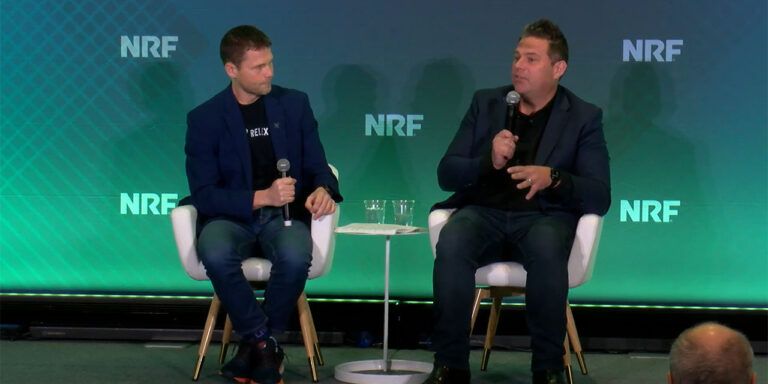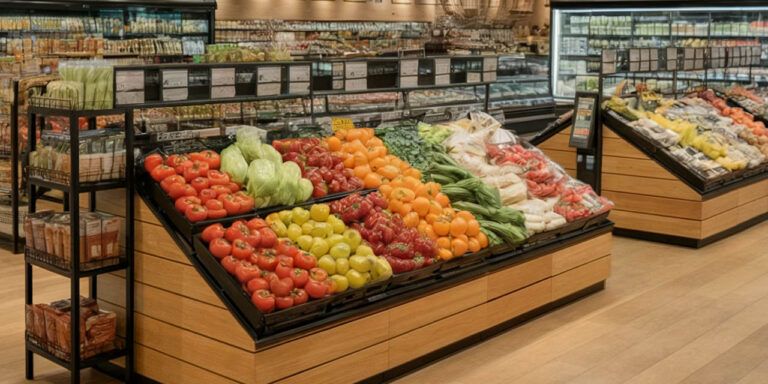Wasted opportunity: What grocery shoppers really think about sustainability
May 23, 2025 • 5 min
We are at a critical inflection point regarding food waste and consumer expectations in grocery retail. To understand these changes, we surveyed shoppers in the U.S. and the U.K. about their attitudes toward food waste in grocery stores.
Some of their answers are surprising and signal a meaningful shift in how consumers view sustainability at the grocery store. The findings reveal that addressing food waste isn’t just an environmental imperative — it’s becoming a crucial business strategy for retailers who want to maintain customer loyalty and improve operational efficiency.
Mind the trust gap
Trust in grocery retailers’ sustainability claims is surprisingly low. Only 14% of U.S. consumers fully trust grocery stores’ sustainability claims, while nearly one-third actively distrust these assertions. The data from the U.K. is even more compelling: 74% of shoppers would switch to a retailer that commits to and reports on reducing food waste. This skepticism represents both a challenge and an opportunity for retailers willing to take meaningful action.
What’s driving this trust gap? Consumers have grown weary of vague sustainability promises without verifiable evidence of progress. They’re looking for transparency and measurable results, not just marketing claims.
This is where data-driven approaches make a difference. For example, our CO₂ Analytics tool provides the measurable transparency retailers need by converting food waste reduction efforts into quantifiable emissions metrics.
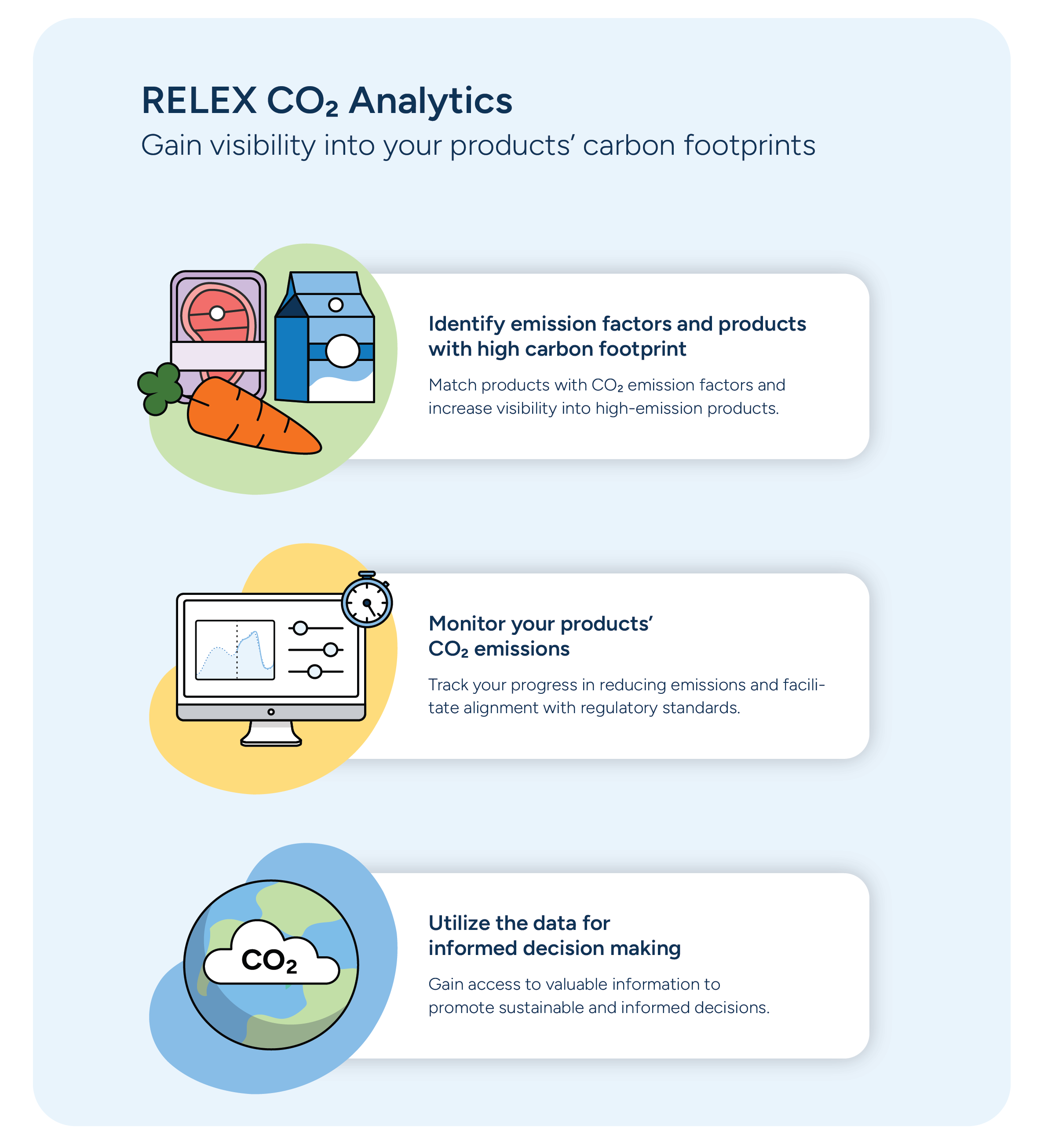
CO₂ Analytics integrated directly into the RELEX platform, pulling product data to calculate the total CO₂ emissions associated with spoilage, sales, or other operational activities. Retailers can visualize emissions data across different levels of the product hierarchy, streamlining emissions tracking and reporting.
With RELEX, grocery retailers can easily track and report Scope 3 emissions, giving consumers peace of mind and simplifying the process of complying with regulatory reporting requirements.
Transform expiring products into sales
One of the most striking findings from our research reveals a significant opportunity for retailers: consumers are eager to participate in reducing food waste while saving money.
The numbers tell a compelling story:
- 93% of U.S. shoppers support discounting short-dated items
- 58% actively seek out these discounted products
- Only 7% reject short-dated products outright
- 63% of U.K. shoppers support improved discounts on these items
- 59% want visible price reductions tied directly to waste-reduction efforts
These statistics challenge the conventional wisdom that consumers always prefer the freshest products with the longest shelf life. Instead, they suggest that effective management of short-dated inventory represents a win-win: reducing waste while driving sales and enhancing customer loyalty.
Optimizing markdowns on short-dated products requires sophisticated timing and pricing strategies. AI-driven markdown optimization ensures the right products receive timely discounts based on remaining shelf life, calculating optimal discount levels to maximize sell-through while balancing margin impact against waste reduction benefits.
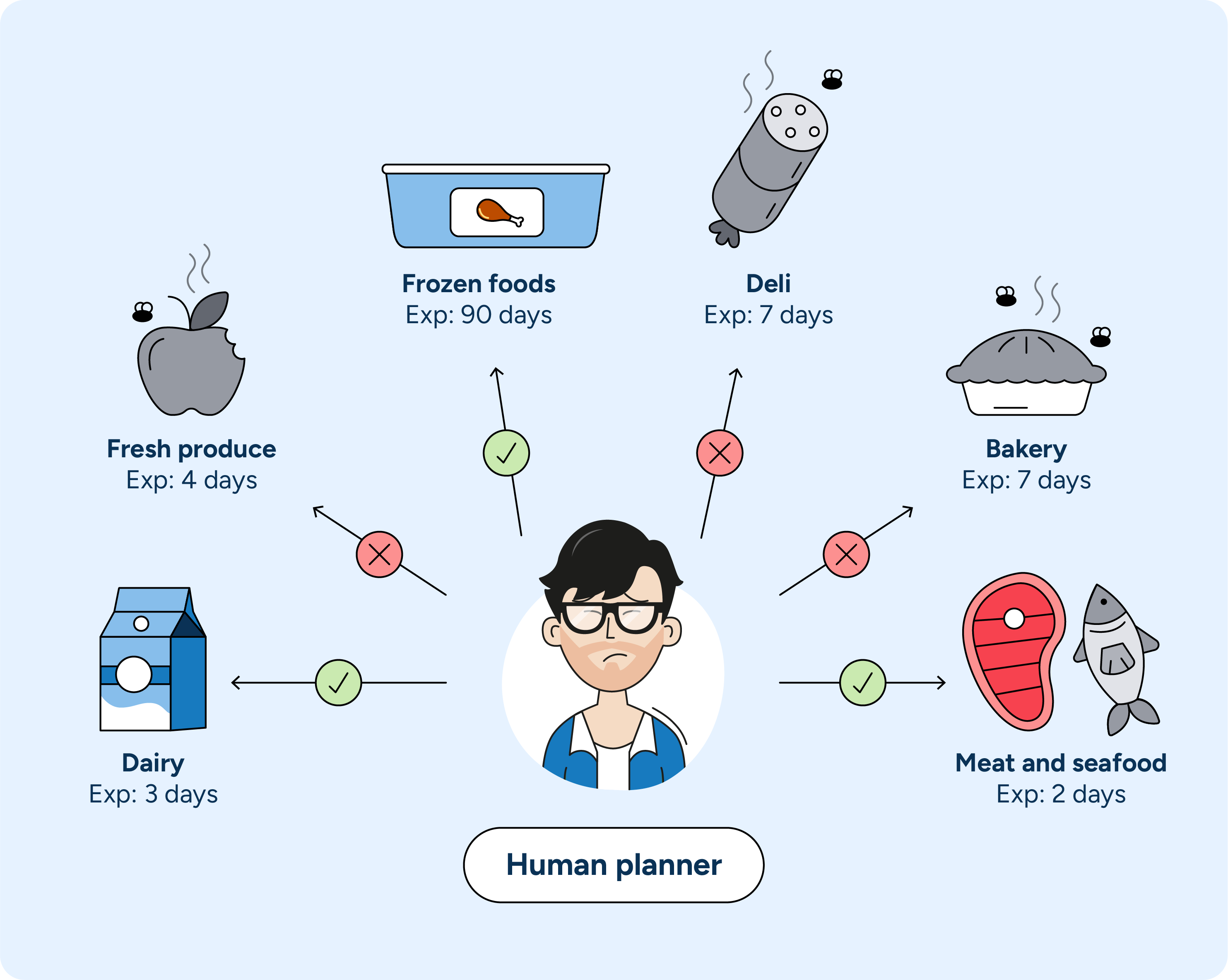
Fresh categories present complex challenges like spoilage and storage needs, making manual planning unmanageable. By leveraging AI, planning becomes precise, reduces waste, and streamlines operations.
The tool uses real-time inventory data to identify products nearing their expiration dates and applies optimal markdowns at the right time to maximize sell-through. By analyzing factors like remaining shelf life, sales velocity, and demand patterns, RELEX calculates the ideal discount level for each product, balancing margin impact against waste reduction benefits.
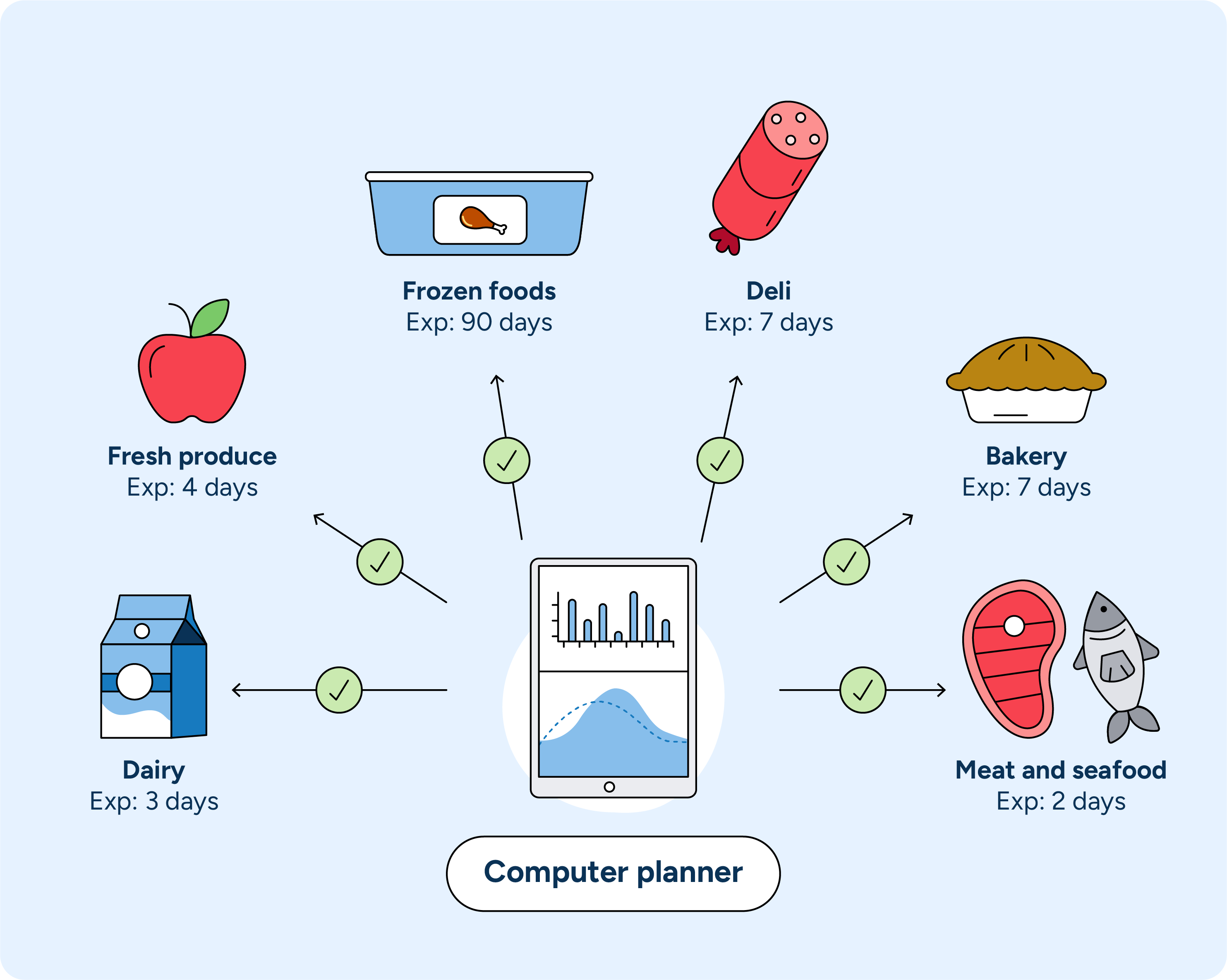
Markdown optimization ensures that discounts are visible and tied directly to waste-reduction efforts. By offering well-timed discounts on short-dated items, retailers can attract price-sensitive shoppers while demonstrating their commitment to reducing food waste.
Navigate consumer and regulatory demands
Our survey uncovered interesting perspectives on who bears responsibility for food waste reduction. While 51% of U.S. consumers view food waste as a personal responsibility, 78% still support stricter government regulations on food waste — with 48% favoring federal action and 31.5% preferring state-level mandates.
In the U.K., where some food waste regulation already exists, nearly half (49%) of shoppers place primary responsibility on supermarkets themselves. The regulatory environment is shifting toward mandated waste reduction and reporting. Forward-thinking retailers recognize that getting ahead of food waste regulation isn’t just about compliance — it’s about competitive advantage.
Fresh optimization technology offers a path forward by dynamically adjusting inventory to reduce spoilage. RELEX uses AI and machine learning to forecast demand for perishable goods with precision, accounting for factors like seasonality, promotions, and weather impacts. This ensures that inventory levels align closely with actual sales patterns, minimizing overstock and waste.
Forward-thinking retailers recognize that getting ahead of food waste regulation isn’t just about compliance — it’s about competitive advantage.
The platform automates replenishment decisions, ensuring that order quantities are optimized to match real-time demand. This reduces the risk of spoilage while maintaining high service levels.
The result is a balanced inventory that reduces waste while ensuring availability — positioning retailers as proactive leaders in waste reduction while simultaneously reducing costs.
Solve the meal planner puzzle
One of our most surprising findings challenges conventional wisdom about waste-conscious consumers: Even those who plan their meals carefully aren’t immune to food waste at home. In fact, 45% of U.K. meal planners report wasting food due to overestimating portions.
This “meal planner paradox” suggests that even conscientious consumers struggle with right-sizing their purchases, creating an opportunity for retailers to provide solutions through product assortment and sizing strategies.
RELEX Diagnostics enables retailers to analyze historical sales data and identify trends in consumer purchasing behavior to get to the root of underlying issues.
By analyzing purchasing patterns, retailers can identify opportunities to better serve these customers through flexible pack sizes and tailored product assortments that better match actual consumption patterns. This approach reduces waste and enhances the customer experience for these valuable, engaged shoppers.
Reduce waste to drive business
While sustainability initiatives are often viewed as cost centers, our research suggests that addressing food waste can actually drive business growth. The connection between waste reduction and improved margins is direct and measurable.
When retailers combine demand forecasting, inventory optimization, and smart markdown strategies, they create a virtuous cycle: reduced spoilage leads to better margins, while visible sustainability actions build consumer trust and loyalty.
The key lies in making waste reduction visible to consumers while measurably improving operations. Technology-enabled transparency closes the trust gap, connecting sustainability to core business performance and positioning grocers as leaders in an area consumers increasingly care about.
By implementing solutions that provide measurable results, grocers can turn sustainability into a competitive advantage, meeting the demands of today’s consumers while building a more efficient, profitable operation.

